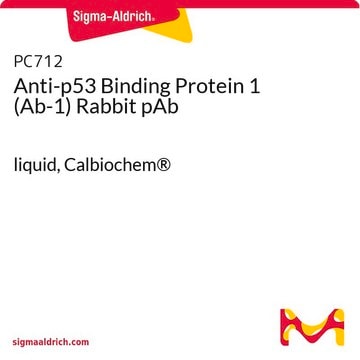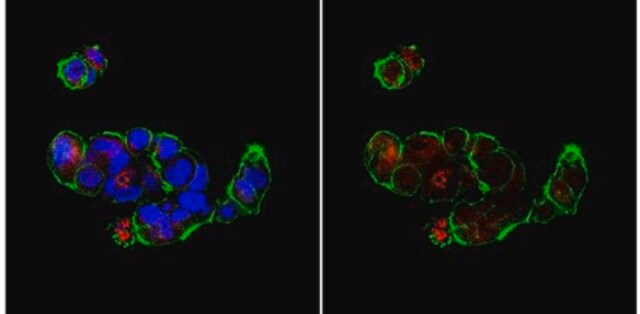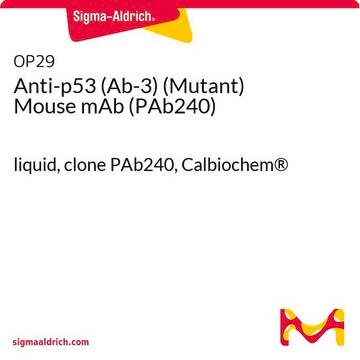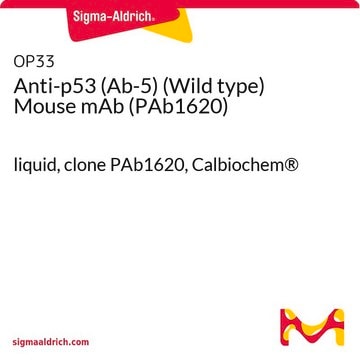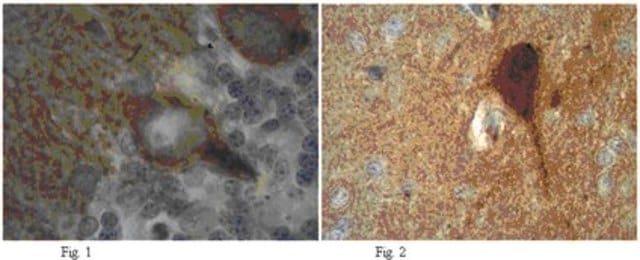PC35
Anti-p53 (Ab-7) (Pantropic) Sheep pAb
liquid, Calbiochem®
About This Item
Productos recomendados
biological source
sheep
Quality Level
antibody product type
primary antibodies
clone
polyclonal
form
liquid
contains
≤0.1% sodium azide as preservative (Anti-p53 and Anti-Sheep IgG only)
species reactivity
human, rat, mouse
manufacturer/tradename
Calbiochem®
storage condition
OK to freeze
isotype
IgG
shipped in
wet ice
storage temp.
−20°C
target post-translational modification
unmodified
Gene Information
human ... TP53(7157)
General description
Immunogen
Application
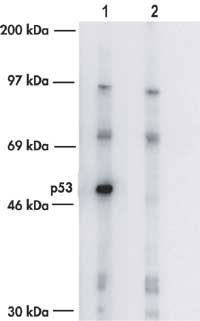
Frozen Sections (1:500)
Immunoblotting (1:2500)
Immunocytochemistry (1:500)
Paraffin Sections (1:500, pepsin or heat pre-treatment required)
Immunoprecipitation (chromatin, see application references)
Components
Warning
Physical form
Analysis Note
A431 or SVT2 cells or breast carcinoma tissue
Other Notes
Greenblatt, M.S., et al. 1994. Cancer Res. 54, 4855.
Barak, Y., et al. 1993. EMBO J.12, 461.
Kastan, M.B., et al. 1992. Cell71, 587.
Kuerbitz, S.J. 1992. Proc. Natl. Acad. Sci. USA 89, 7491.
Lane, D.P. 1992. Nature358, 15.
Kastan, M.B., et al. 1991. Cancer Res.51, 6304.
Legal Information
¿No encuentra el producto adecuado?
Pruebe nuestro Herramienta de selección de productos.
Storage Class
10 - Combustible liquids
Certificados de análisis (COA)
Busque Certificados de análisis (COA) introduciendo el número de lote del producto. Los números de lote se encuentran en la etiqueta del producto después de las palabras «Lot» o «Batch»
¿Ya tiene este producto?
Encuentre la documentación para los productos que ha comprado recientemente en la Biblioteca de documentos.
Nuestro equipo de científicos tiene experiencia en todas las áreas de investigación: Ciencias de la vida, Ciencia de los materiales, Síntesis química, Cromatografía, Analítica y muchas otras.
Póngase en contacto con el Servicio técnico
